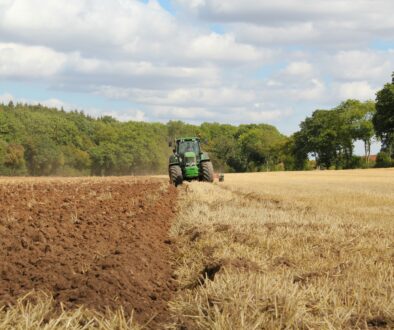Agricultural tenancies : assignment, underletting and parting with possession
Agricultural tenancies : assignment, underletting and parting with possession
A: Agricultural Holdings Act 1986 (the 1986 Act)
In practice, the Tenancy Agreement will ordinarily prohibit or restrict dealings, either because the parties expressly agree the terms of a prohibition or restriction, or because the Tenancy Agreement (whether oral or written) is silent in this respect, and in which case section 6 of the 1986 Act enables the landlord to apply to an arbitrator for a written agreement to be produced which includes the matters listed in Schedule 1 of the 1986 Act, one of which is a covenant by the tenant ‘not to assign, sub-let or part with possession of the holding or any part of it without the landlord’s consent in writing’.
An assignment or underletting in breach of covenant amounts to an irremediable breach of the tenancy entitling the landlord to serve a notice to quit under “Case E” (in short, where the landlord has been materially prejudiced by the tenant’s irremediable breach of the tenancy agreement) .
Any other unlawful sharing of occupation or parting with possession amounts to a remediable breach, entitling the landlord to serve a notice to quit under “Case D” (failure to remedy non-payment of rent or another breach which is capable of being remedied).
Any dealing with the tenancy which is in breach of covenant also entitles the landlord to forfeit if the tenancy agreement contains a forfeiture clause.
Landlord’s consent : Section 19 of the Landlord and Tenant Act 1927 does not apply to agricultural tenancies. As a result, there is no implied term that the landlord’s consent is not to be unreasonably withheld. In the absence of an express requirement of reasonableness, the landlord’s consent may be withheld for any reason, or for no reason, effectively preventing the tenant from dealing with the tenancy in any way.
However, once consent has been given, even if purportedly qualified by words such ‘subject to licence’ or ‘in principle’, it will be effective immediately and cannot subsequently be withdrawn.
The landlord may be prepared to consent to an assignment by the tenant where the assignment is to a ‘close relative’ within section 35(2) of the 1986 Act. Such an assignment counts as one of the two permitted ‘successions on death’ to which the tenant is entitled under Part IV of the 1986 Act.
Where landlord’s consent is not to be unreasonably withheld the landlord must comply with the statutory duties imposed by section 1 of the Landlord and Tenant Act 1988. In short, the landlord has to act reasonably, and within a reasonable time.
Tenant’s statutory right to secure landlord’s consent or variation of tenancy terms: The Agricultural Holdings (Requests for Landlord’s Consent or Variation of Terms and the Suitability Test) (England) Regulations 2021 give tenants of agricultural holdings in England a statutory right to secure the landlord’s consent, or a variation of the terms of their tenancy, to enable them able to apply for ‘financial assistance’ in relation to agri-environment schemes and diversification projects introduced by the Agriculture Act 2020.
If the tenant needs the landlord’s consent, or a variation of the terms of the tenancy, to enter into a scheme or to comply with a statutory duty, the tenant can serve a notice on the landlord requesting that consent or variation. The request must specify the consent or variation that is being requested and must describe the proposed activity for which the consent or variation is required. If the landlord refuses the request, or agrees to it subject to conditions, the tenant can refer the matter to an arbitrator appointed under the 1986 Act or (if the parties agree) to an expert.
In order for the request to be referred to arbitration:
- the tenant must be up to date with payments of the rent
- the request must be in writing
- there must be no outstanding (valid) notice to quit
Any consent or variation to which the landlord agrees or which is imposed by the arbitrator/expert may affect the open market rent for the property. Although it would be open to the parties to agree a revised rent, the arbitrator/expert cannot impose a variation to the rent. Instead, the parties must wait until the next review (by which time the impact of the consent or variation should be clearer).
B: Agricultural Tenancies Act 1995 (the 1995 Act)
Under the 1995 Act the landlord and the tenant are free to negotiate terms for assignment, underletting and parting with possession.
If dealings are only permitted with the landlord’s consent, there is no implied term that the landlord’s consent is not to be unreasonably withheld, again because section 19 of the 1927 Act does not apply to agricultural tenancies.
Where landlord’s consent is not to be unreasonably withheld, the landlord must again comply with the duties imposed by section 1 of the Landlord and Tenant Act 1988.
In relation to leases granted on or after 1 January 1996 (with some limited exceptions), the tenant is automatically released from the tenant covenants in the tenancy agreement following a lawful assignment of the tenancy. However, the landlord can require the tenant to enter into an authorised guarantee agreement, under which the outgoing tenant guarantees the assignee’s performance of the tenant covenants in the lease.
(This article is not intended to be comprehensive or to provide specific legal advice. It should not be relied upon in the absence of specific advice given in relation to particular circumstances.)
For further information, please contact: Natalie Linehan, Andrew Williamson or David Thorp




